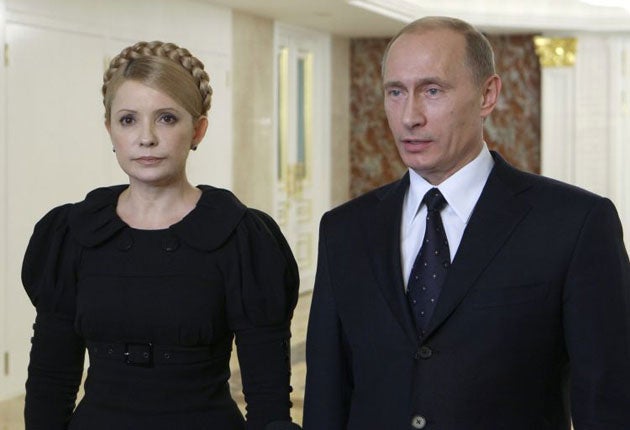Cautious optimism as Gas dispute nears resolution

The protracted gas dispute between Russia and Ukraine appears to have come to a conclusion this weekend, as the two countries came to an agreement that should allow Russian gas to flow through Ukraine and into energy-starved Central European countries.
But countries such as Bulgaria, which rely entirely on Russian gas, are not celebrating just yet. Even if the agreement is signed tomorrow as planned, it could be several more days before gas reaches Europe, and a statement from the European Commission was cautiously positive but noted that there had been “many false dawns” in the dispute.
After a long day and night of negotiations, Russian Prime Minister Vladimir Putin and his Ukrainian counterpart Yulia Tymoshenko said early this morning that they had agreed on the price Ukraine would pay for its gas, allowing transit to Europe to resume.
Ms Tymoshenko said that it had been “difficult” to garner a concession from the Russian leader, but that she had come away with a deal giving the country a 20 percent discount on the “market price” that Russia wanted Ukraine to pay.
However, the discount only lasts for one year and still means Ukraine will be paying around twice what it paid for gas last year.
Russia stopped supplying gas for Ukraine's own needs on New Year's Day, and then halted all gas flows a week later, accusing Ukraine of illegally siphoning off gas for its own consumption. Since then, Central European and Balkan countries, many of which rely exclusively on Russian gas, have been enduring a freezing winter with reduced energy supplies as Moscow and Kiev have haggled over prices and traded acrimonious words.
Ms Tymoshenko is due to return to Moscow tomorrow to sign the final agreement, and a Gazprom spokesman said yesterday that the company was working with the Ukrainian firm Naftogaz to sign contracts regarding both the transit of gas and Ukraine's own gas consumption.
In Sofia, the Bulgarian capital, more than 2,500 marched yesterday calling for two nuclear reactors closed down in 2006 as part of the country's EU accession deal to be restarted.
Russia has been hit hard by the global financial crisis, with the sharp drop in oil prices leading to an economic slowdown and a plummeting rouble. Ukraine's economy is in even worse shape, and analysts say even with the 20 percent “saving” that Tymoshenko negotiated in Moscow, Ukraine will struggle to keep up with payments.
Russia has also said that Ukraine owes Russian hundreds of millions of pounds in unpaid fees, which the Ukrainian side has strenuously denied. There was no mention of this thorny issue over the weekend.
The dispute has underlined differences between Mr Yushchenko and his prime minister, Ms Tymoshenko, who stood together as the leaders of the Orange Revolution in 2004, but have been at loggerheads ever since. Throughout last week the pair made statements that appeared to contradict each other on what compromises Ukraine might make to get gas flowing again. Ms Tymoshenko is thought to have her eye on the presidency, with elections due in a year.
The weekend negotiations in Moscow have also underlined that Russian President Dmitry Medvedev plays a junior role in foreign policy negotiations to Mr Putin, who stepped down from the presidency last year but is still regarded as the most important man in Russia. Mr Medvedev chaired a gas summit during the day which brought little results, and it was Mr Putin who sealed the deal in make-or-break negotiations with Tymoshenko.
Despite both countries insisting that sole blame for the crisis lay with the other, it is clear that the dispute has damaged the reputation of both in Europe. However, with European countries getting 20 percent of their gas from Russia, most of it via Ukraine, there is not much they can do except hope that the dispute is finally over.
Subscribe to Independent Premium to bookmark this article
Want to bookmark your favourite articles and stories to read or reference later? Start your Independent Premium subscription today.

Join our commenting forum
Join thought-provoking conversations, follow other Independent readers and see their replies